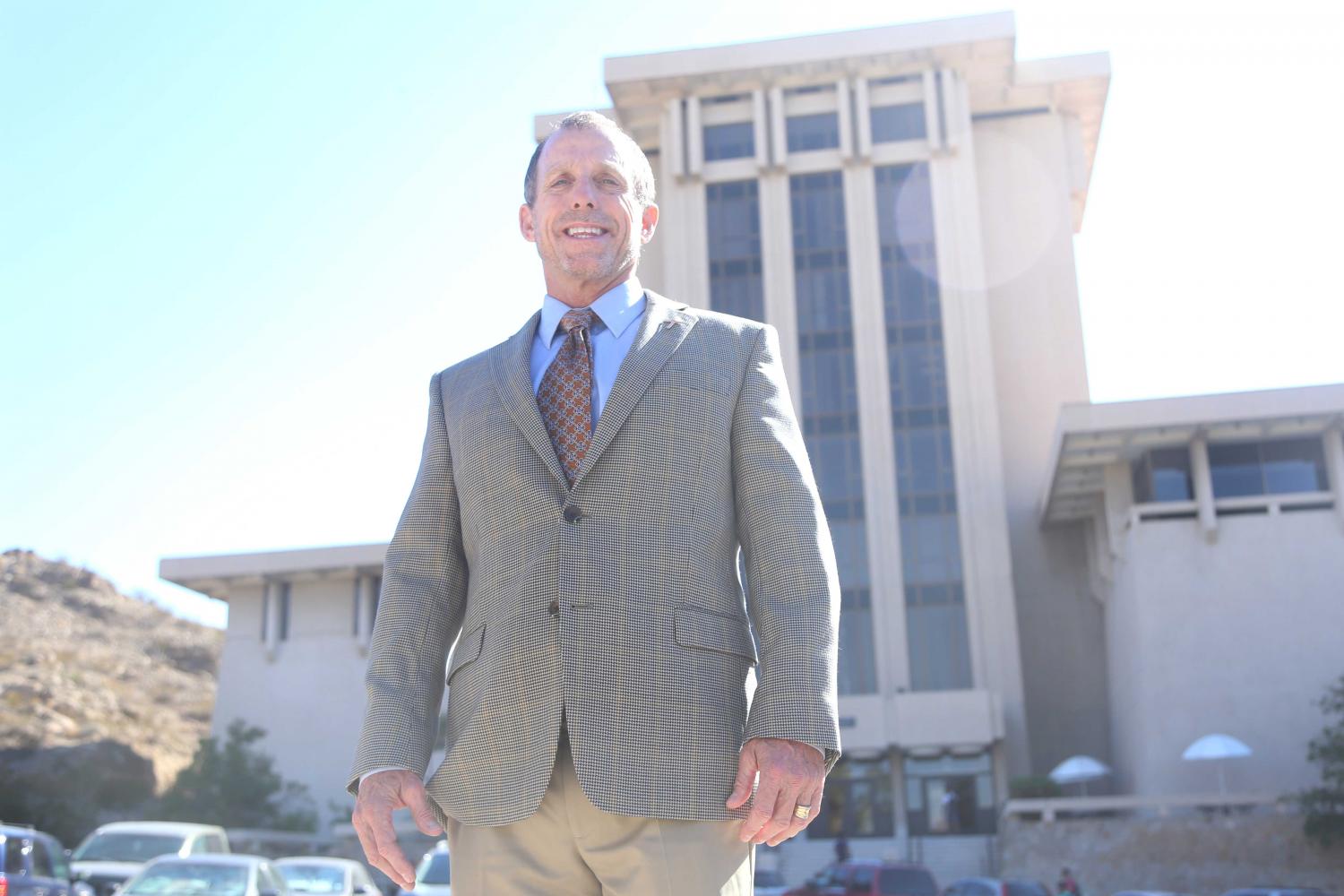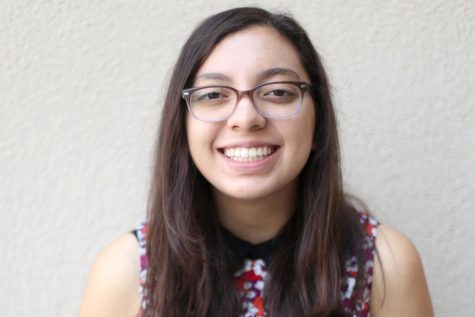Earlier this summer, the College of Education announced a new interim dean, William Robertson.
Robertson has been a part of UTEP’s faculty for 13 years already and joined the staff in 2004. He has served as a professor and a co-chair for the Department of Teacher Education. He brings to the table a doctorate in multicultural teaching and childhood education from the University of New Mexico, and the experience of being a former associate dean and associate provost.
In 2016, Robertson was awarded the Meritorious Service Award for his community engaged scholarship by UTEP President Diana Natalicio.
Robertson has a unique approach to teaching. His students know him as “Dr.Skateboard” for his demonstrations of physics of skateboarding.
Although only the interim dean, Robertson is committed to the school. He began his role on July 1, taking over for Cyndi Giorgis, who represented the College of Education for the past three years.
Robertson answered a few questions about the new position he is taking on.
How do you feel about making the transition from co-chair to dean?
R: Well for me, I think it’s a great opportunity to build a little momentum for the college that we have going forward. It’s a chance to reinvigorate our mission into the community and it’s also a chance for us to grow as a faculty and finish many of the projects that we’ve been working on.
I’ve had experience, not only as a co-chair, but as an associate dean. I’ve been in this office before and I was an associate provost. So I’ve had a variety of administrative positions and I think also put me in a good position to not only understand how it works well in our college, but also to be effective across the university.
Looking at that, how do you feel overseeing the whole college?
R: For me I think it’s just a great opportunity to get in touch with all of the great things we do here in the College of Education. We’re known primarily for things in teacher education, in bilingual education, but you know we do so much in leadership, counseling, mental health, early childhood, STEM educations.
That’s one of the exciting things, it really gives you a chance to get in touch with every facet of it. Plus, we have over 60 faculty across the departments and probably an equal number of staff. You get to work with a group of motivated people, who are committed to the education of our region and beyond.
Finally, it’s the chance to get to interact with students, all the undergrads across all of the programs and the graduate and doctoral students. That’s something that you get to do in this role. You really get the chance to see the success of students at all levels. Really, you’re in the success business so we want to help students to achieve those dreams and we want to inspire others to do the same.
How did you get the position of interim dean?
R: Within our college we met with the president and the provost. They said, ‘we would be interested as a faculty putting forward a number of people who might be interested in doing this.’ So we went through an application process through our college. People were nominated, and if you were nominated you also submit materials for consideration.
I was one of five people who submitted their materials who were nominated and accepted those nominations, and then those materials went forward to the provost, and in conjunction with the president and meeting with the different candidates, then made the selection and I was fortunate enough to be picked.
The one thing was that we as a college were looked upon to bring forward someone to take on this role and we were able to meet that need ourselves. That’s one of the reasons we developed a well-participated process. We had over 40-something faculty participate with nominations and an equal number of meetings to discuss what the qualities would be for the individual who would be the interim. I felt it was a pretty democratic process, but I had to apply for it; I had to be interviewed and then hopefully be accepted and willing to take on the job.
As interim dean, you’re not officially the dean. You’re there temporarily? How long do you see yourself in the position?
R: “As the provost said to me, ‘you’ll be the interim dean, but just remember that the interim dean is the dean.’ So you have to function like the dean while you’re in it. Really your goal as an interim is to prepare a path for the incoming dean, but also you have to meet the need of the college as they are. That means growing the program, being with the students, the community. Sometimes interim positions do last longer than a year, I think you have to be prepared to do that. I’m going into my 14th year with UTEP. I’m committed to the university, to the college.
This, I’ll look at not only as an opportunity for me, but what I would consider a strong service to the college and the university. I’m hopeful that we’ll find the right person, but I’m also understanding that it’s a process that has to be worked through as well. I’m here for the long haul, here in El Paso and UTEP.
Having served at UTEP for so long, can it be seen as an advantage?
R: That’s the other thing, you want people who understand us, El Paso, the community and certainly our program. Even after my interim is over, I’m still a faculty member and anticipate being involved in big ways with what we’re doing here at UTEP.
Are you worried at all about going into the position, making changes and then having someone else come in as dean and undo all of that change?
R: You run that risk. So I think one of the things you have to do is identify the projects you want to complete. Typically, what people do is they look at things that are unfinished or have stalled. That’s a call for us as faculty too, we need to finish many of the projects that we have, in order to present to a new dean or an administration. “These are the things we have agreed on as a faculty.” Then we would hope that the dean would work on that and areas that need to be improved, not things we’ve already accomplished.
You run that risk of having someone come in and undoing your agenda. If you’re careful and you’ve created this consensus and those items in conjunction with the faculty, it’s not only your voice that’s bringing it forward, it’s the collective voice of the group. That typically carries a lot of weight with a new dean. I think deans are looking for new places where they can achieve success, and if they’ve already got success they can build off of those instead of trying to recreate them.
Any other words on, not just the position, but the College of Education?
R: Well I think that the message too is that the College of Education is here to serve students who are interested in being teachers, in being counselors, in being mental health workers, educational leaders and also getting their master’s and doctoral degrees.
We look forward to serving our students in being highly visible in the community. We really feel we’re the heart of the institution, where the university really interfaces with the community and we’re deeply committed to that. I look forward to serving our community and our college for this interim period.











